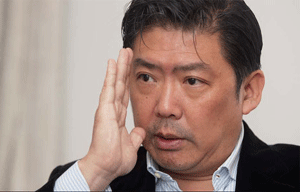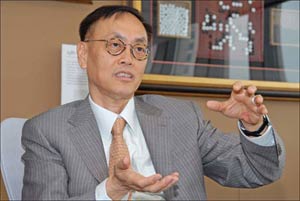Premier warns of decreased openness
Updated: 2011-10-15 07:24
By Ding Qingfen (China Daily)
|
|||||||||
Wen said rising protectionism is damaging the global economy
GUANGZHOU - Premier Wen Jiabao on Friday called for joint international efforts to combat rising trade protectionism, which he said is damaging the world economy amid ongoing global economic turbulence.
"We should embrace opening-up and development, instead of closed doors and stagnation. This is a general trend," said Wen at the opening ceremony of the 110th Canton Fair in Guangzhou.
The forum falls on the 10th anniversary of China's entry into the World Trade Organization.
"The current challenge is that there is growing trade protectionism worldwide and more trade frictions are politicized, which casts a large shadow over and hurts the global economic recovery," Wen told exporters in a speech carried on State television.
"China and the other nations should work hand-in-hand to open up markets to each other, with more sincerity and determination, firmly beating down trade protectionism."
Wen said countries should be rational in dealing with trade disputes as the world grapples with a mounting debt crisis.
"The shadow of an international financial crisis can be removed as soon as possible ... only if we properly handle international trade friction in a more rational way," he said.
Wen made no specific mention of the United States, but his remarks followed a storm of protest in China over a bill that Beijing has warned could start a trade war between the world's top two economies.
Early this week the US Senate passed legislation aimed at charging duties on Chinese exporters, alleging China was holding down the value of its currency. The European Union recently launched a series of trade remedy cases against Chinese exports of tiles and bicycles.
"Nations tend to focus on narrower objectives such as on boosting exports especially in difficult situations," said Harsha V. Singh, deputy director-general of the WTO.
"Open markets create multiple win-win conditions for all," Singh said.
"It is extremely important for nations to work together and further improve the mutually supportive international conditions."
The 110th Canton Fair has attracted more than 23,700 export-oriented enterprises to display their goods, and 280,000 global buyers applied to enter.
But the Ministry of Commerce said the prospects for China's exports are not optimistic, citing the gloomy global economy and rising yuan and labor costs in China.
According to the General Administration of Customs, China's exports experienced their smallest growth since February and the trade surplus dropped to its lowest since May.
"China follows the policy of expanding imports and stabilizing exports. We never intentionally seek a large trade surplus," said Wen.
Wen said China's becoming a member of the global trade body has proven to create win-win benefits for both China and other nations.
Despite the achievements that China has made since its entry into the WTO a decade ago, "China will continue to push forward its reform and opening-up policy with incomparably firm determination and courage," as China is still a developing nation characterized by imbalanced economic development, said Wen.
"Trade development and investment promotion is a key factor in reviving the global economy," the premier said.
While stabilizing exports, China pledged to expand imports to balance trade as part of its 12th Five-Year Plan (2011-2015), with the combined imports volume in the next five years expected to reach $8 trillion.
China's yearly trade surplus has been falling since the financial crisis began. The figure dropped 34 percent from 2008 to $196 billion in 2009, further sliding to $183 billion last year.
The nation's trade surplus will account for less than 3 percent of its gross domestic product this year, Wen predicted.
China also vowed to encourage Chinese companies to invest overseas, besides continuously welcoming foreign business to invest, especially in China's central and western areas.
"Those qualified and reputable companies play the major part in the going-overseas strategy," said Wen.
Its large foreign exchange reserves makes it possible for China's overseas direct investment to grow. The People's Bank of China, or the central bank, announced on Friday that China's foreign exchange reserves exceeded $3.2 trillion at the end of September.
It is vital for the world that China maintains open markets as the world will continue to benefit from China's growth, said Singh.
Success for all
"China's becoming a member of the WTO is a success not only for China, but also the world," said Wen.
China became the largest exporting nation in 2009, and it has been the most popular destination for foreign direct investment among developing nations for 19 years.
The accumulated foreign direct investment reached $760 billion in 2010.
During the past 10 years, China's overseas direct investment grew 40 percent annually, reaching $68.8 billion in 2010.
China is now the largest destination for exports from emerging markets including Brazil and South Africa, and the least developed nations.
China Daily
(China Daily 10/15/2011 page1)










